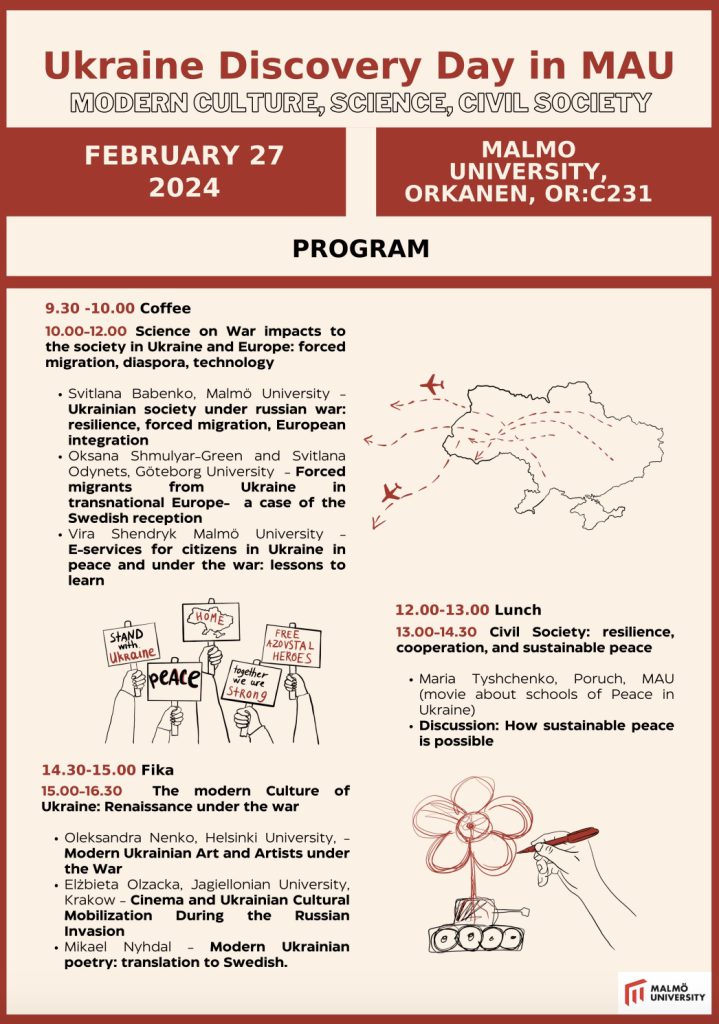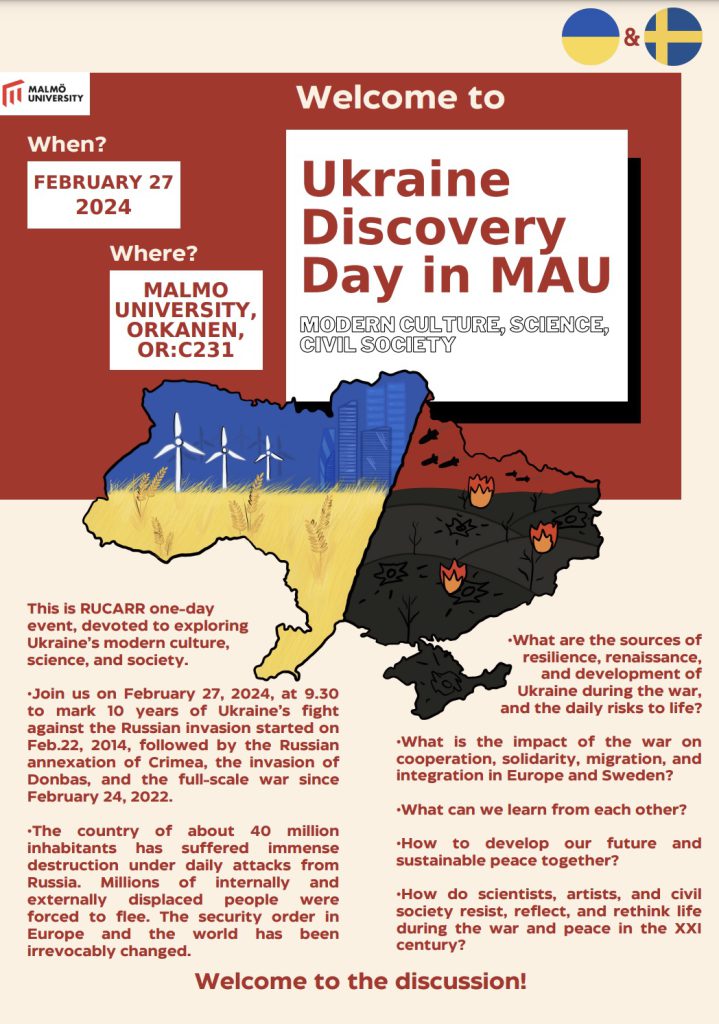The Influence of Critical Junctures with Russian Involvement on its Standing in the Baltic States. The Analysis of Narratives and Public Perceptions
 When: March 12, 2024, 15.15-16.30
When: March 12, 2024, 15.15-16.30
Where: Niagara building, 9th floor, seminar room (zoom: https://mau-se.zoom.us/s/64204938730)
Natalia Iost studied political science and Jewish theology in the Universities of Heidelberg, Stuttgart, and the University of Jewish Studies. Today, she is a Doctoral Fellow in the University of Greifswald’s International Research Training Group: Baltic Peripeties – Narratives of Reformations, Revolutions, and Catastrophes.
Abstract
Critical junctures with Russian involvement have always affected the security situation in the Baltic states. The Russian-Georgia War (2008), the Annexation of Crimea (2014), as well as the beginning of the Russian-Ukraine War in 2022 caused a splash in security narratives, which increasingly depict Russia as the main threat. In my analysis, I apply securitization theory to show how critical junctures such as international crises and wars influenced the securitization of Russia in Estonia, Latvia, and Lithuania in the last 30 years. I will answer the questions of how exactly the depictions of Russia changed in the security narratives of the Baltic states in the aftermath of the international crises. Which Russia-related issues started to be perceived as a threat? And which strategies were discussed to combat the threats? In the next step, I will analyze the changes in public attitudes towards Russia in all BSR countries. I claim that critical junctures with Russian involvement considerably influenced security narratives and public attitudes in the Baltic states and the whole Baltic Sea region, shifting Russia to the very center of security concerns.




